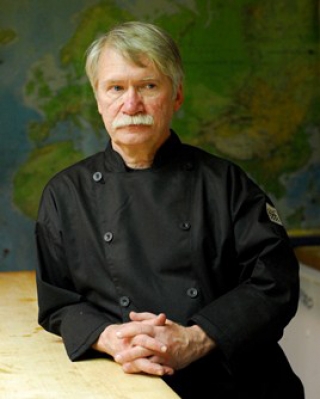
The Most Important Thing You Can Teach Your Students and Faculty
27 January 2016Successful programs cultivate and develop an entrepreneurial spirit from students to faculty to administrators – they treat it as if they own it.
By Paul Sorgule, MS, AAC
Deans and directors should never lose sight of their responsibility to teach and to do so by example. A significant part of your responsibility is to teach your faculty. The most important skill and attitude you can pass on is to always think and act like entrepreneurs. If there is one skill that will benefit every stakeholder in the educational process, it is this focus on “treating what he or she does as if they own it.”
What will allow your program to be successful? What will set the stage for a student’s real career success? What is it that benefits the organization that your faculty members work for, the program that your students learn from, and the businesses that your graduates work for? The answer is an entrepreneurial outlook that drives everyone to think about the impact of the everyday decisions they make.
Teach your faculty members how to look at their classroom as a self-sustaining business. A business that is responsible for delivering exceptional value for the money spent. A business that ultimately is responsible for delivering a product that exceeds the expectations of those who could benefit from the results. Let your faculty members know how much each student invests and push them to deliver exceptional value for that investment. Every faculty member, as an entrepreneur, should enter that kitchen or classroom everyday with the intent of exceeding the expectations of each and every student. Every faculty member should be empowered to constantly seek ways to improve upon the product and service they deliver. Just like in business, the faculty member’s success should be self-assessed based on a standard of excellence.
Faculty should measure student performance based on how well they owned their education and the product they delivered, such as finishing a task in the kitchen or research paper or speech. This is beyond simply meeting the required course standards.. Encourage students to question and professionally challenge what they are learning. Entrepreneurs do this every day. Acceptance without understanding is not learning to grow and excel. Entrepreneurs question and so should your students.
If you have an outlet for the products produced in your teaching kitchens make sure that the over-riding rule is the same as the most successful restaurateurs: “We all make mistakes, students are paying for the opportunity to learn from mistakes. However, the general public must never see mistakes. Never serve a mistake to a guest.” One of my favorite posters was printed by the U.S. Department of Labor many years ago – it simply asked: “Would you be willing to sign your work.”
By example, every faculty member and student must be measured on his or her understanding that restaurants are fragile financial entities that can ill-afford wasteful work habits. Teach students to control waste, show them how much everything costs – including their waste and mistakes. Create an environment where students are as concerned about cost as they are the flavor of the dish they create. This is how entrepreneurs think and this is an important part of their value as an employee.
When designing your teaching kitchens, make every attempt to design them to parallel realistic environments. Design your lessons to emulate the business environment that graduates will face. When a student graduates they will likely work in kitchens that are smaller than they would like, equipment will not be as plentiful as they see in classroom kitchens, and tasks will be handled by fewer cooks than they may have seen up to this point. Timing is a critical piece of operating a successful restaurant, so faculty should be encouraged to create the pressure of timing in every situation possible. What the student is exposed to will set the stage for their adaptability in the future.
Be as transparent as possible with the operation of your program. Share all financials with your faculty on a regular basis and give them an opportunity to question and suggest. Share as much of this financial information as possible with your students as well. The best restaurants engage employees in this reality. Why not start while students are learning those habits that will set the stage for their future?
On occasion, offer students and faculty an opportunity to engage in program ideation sessions. Be transparent, ask faculty and students to contribute to program critique and even more importantly, idea sharing that could lead to positive initiatives. This is what entrepreneurs do well. When people are involved, they feel obligated to contribute and become stronger advocates for the program or business.
I would go so far as to guarantee that if you do this your program will prosper as a result. There may occasionally be some painful dialogue, but “no pain, no gain” applies to business and education as well as sports. I guarantee that a program which takes on the feel of entrepreneurship will graduate students who are better prepared to contribute to the success of a restaurant and in turn find career opportunities knocking on their door.
PLAN BETTER – TRAIN HARDER
Paul Sorgule, MS, AAC, president of Harvest America Ventures, a mobile restaurant incubator based in Saranac Lake, N.Y., is the former vice president of New England Culinary Institute and a former dean at Paul Smith’s College. Contact him at This email address is being protected from spambots. You need JavaScript enabled to view it..
